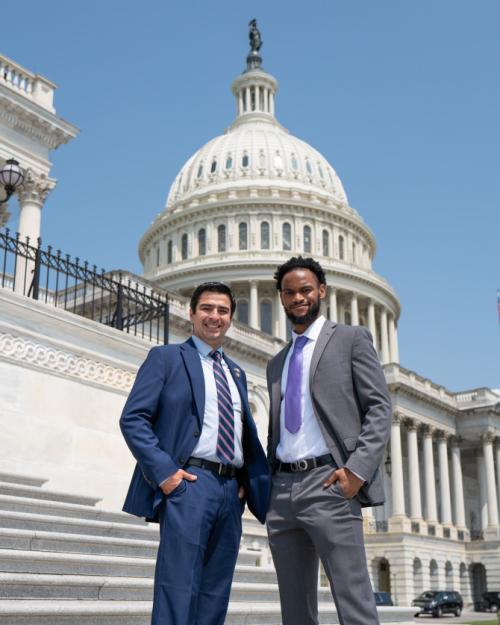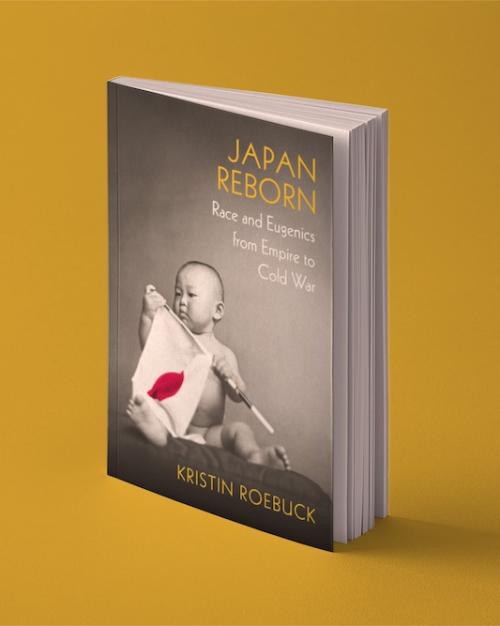Highly educated, high-income immigrants to the United States are changing the look and feel of American suburbs by tearing down older homes built just after World War II and building sprawling new houses, pejoratively called “McMansions.” But the changes are not always welcome by long-time neighborhood residents, said Suzanne Lanyi Charles, assistant professor in city and regional planning.
Charles is using a grant she received from the Institute for the Social Sciences (ISS) to take a closer look at how the new homes are physically transforming Morton Grove, Skokie and Lincolnwood, three communities outside Chicago. She’s also examining how the transformation is affecting the formation and evolution of ethnic concentrations.
Charles’ research is one of 15 projects and three conferences the ISS is supporting this spring through its biannual small grant program. The ISS awards up to $12,000 to principal investigators for research and $5,000 for conferences.
“We encourage junior Cornell faculty members to apply for small grants; the ISS tries to assist young scholars,” says Daniel T. Lichter, the Robert S. Harrison Director of the ISS. “They are the life blood of the university.”
Chris Garces, assistant professor in anthropology, is conducting an ethnographic research project examining whether the “community prisons” in Brazil, Ecuador and the Dominican Republic – where inmates take the place of prison guards – are more cost effective, provide better rehabilitation and are less prone to violence within the prison walls than traditional security prisons.
Two ISS-supported research projects are examining social issues in New York. Mildred Warner, professor, and Yunji Kim, a doctoral candidate, both in city and regional planning, are hosting focus groups to examine the impact the 2011 tax cap has had on municipalities’ ability to maintain their infrastructure and provide local government services.
“This study will provide the first comprehensive picture on the impact of state-imposed austerity on municipalities across New York state,” Warner said. She anticipates the findings will inform the debate about needed reforms to the property tax cap in New York.
Another New York-based research project, led by John Sipple, associate professor in development sociology, and Sharon Tennyson, professor in policy analysis and management and director of the Cornell Institute for Public Affairs, is exploring interventions, such as educating parents about drug abuse, nutrition, and health care, to enhance the impact school-based health clinics are having in Otsego and Chenango counties.
“Many rural communities are getting poorer, more violent, have greater drug use and less economic opportunity. This project aims to reverse some of this by integrating interventions and longitudinal data analysis to monitor progress and impact,” Sipple said.
Mallika Thomas, assistant professor in economics at the ILR School, is using laboratory experiments to look at how labels describing undocumented workers, such as “undocumented,” “unauthorized” or “illegal,” impact both the immigrants’ bargaining power in employee-employer relationships and altruism exhibited toward them.
Concerned about the rise in obesity and poor diets in the United States, Congress enacted a law requiring future chain restaurants to list the calorie counts of their menu items. Interested in how patrons will respond to seeing, for example, that a McDonald’s bacon clubhouse burger has 740 calories, John Cawley, professor of policy analysis and management, and Alex Susskind, associate professor in the School of Hotel Administration, have begun a randomized experiment in a full-service restaurant.
“We are testing whether providing calorie information leads to fewer calories ordered, and whether such decreases are particularly common in the dessert category,” said Cawley.
The ISS is supporting the upcoming conference, Exile and Enclosure, May 13-15 at the Africana Studies and Research Center. Organized by Raymond Craib, associate professor in history, the conference explores the historical relationship between exile (forced migration) and enclosure (varied forms of political and material expropriation), as well as new forms of voluntary exile that seek to generate alternative spaces of freedom from exploitation and expropriation.
Another ISS-funded conference, organized by Aaron Sachs, associate professor in history, is focusing on creative academic writing. Planned for May 13, 2017, the conference is designed to spotlight the cultural pressures that make the goals of scholarly production and artful prose appear at odds, and identify ways to achieve them.
“I’m hoping the conference builds a sense of community and boosts morale, especially among the younger scholars feeling trapped between the desire to hit conventional benchmarks and to experiment with more creative approaches,” said Sachs.
Maureen Waller, associate professor in policy analysis and management, is looking at how fathers’ involvement in their children’s lives may reduce inequality in academic and behavior outcomes. As part of her research, she is considering whether social and economic policies, including sentences for drug offenses, barriers to re-entry after imprisonment, and minimum wage laws, may promote or discourage father’s involvement in their children’s lives.
The ISS also gave small grants awards to College of Arts and Sciences faculty: Chiara Formichi, Asian studies; Shimon Edelman, psychology; Anna Haskins, sociology; Stacey Langwick, anthropology; and Victor Seow and Camille Robcis, both in history.
Samuel Kleiner in policy analysis and management and Valerie Reyna in human development from the College of Human Ecology, and Sachin Gupta from the Samuel Curtis Johnson Graduate School of Management also received awards to support their research.
The ISS intends to issue another round of small grant awards in fall 2016. Details will be announced in mid-August.
This article also appeared in the Cornell Chronicle.




